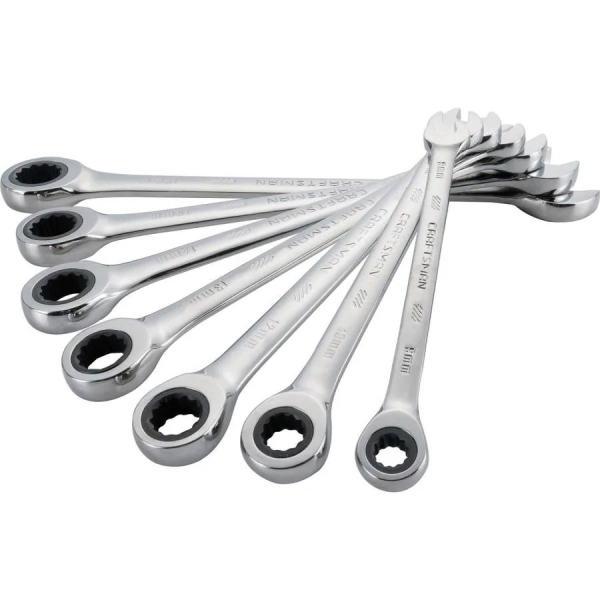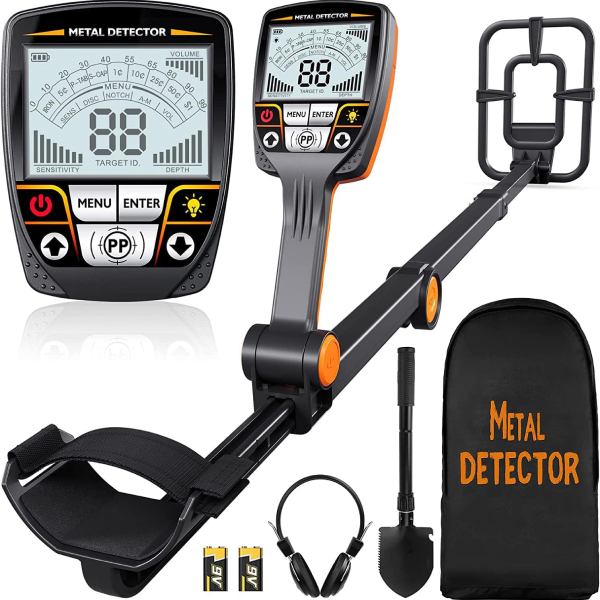Ratchet Wrench: A Comprehensive Guide to Its Use and Benefits
Understanding the Ratchet Wrench
The Importance of a Ratchet Wrench
A ratchet wrench is essential for both professionals and DIY enthusiasts. It significantly speeds up the process of loosening and tightening fasteners. Users can turn the handle without lifting it off the surface. This enables them to work in compact areas where movement is limited. Additionally, the ratchet mechanism allows for a quick transition between different fasteners. People appreciate its versatility for various tasks, from automotive repairs to furniture assembly. The ergonomic design further enhances comfort and ease of use. Users can apply more torque without excessive effort, which reduces strain on their hands.
![]()
Enhancing Efficiency with Ratchet Wrenches
Incorporating a ratchet wrench into your toolbox boosts overall efficiency. Many users notice they complete tasks quicker than with traditional wrenches. The ability to maintain continuous motion saves valuable time. Furthermore, the ratcheting feature minimizes the need for adjusting the tool frequently. This aspect becomes crucial during long projects or when working in confined spaces. Many people find that they can achieve better results with fewer mistakes.
A ratchet wrench also promotes confidence among users, as they feel more capable in their tasks. By using this tool, they can tackle jobs that may have seemed challenging before. Overall, a ratchet wrench provides both convenience and functionality, making it an indispensable addition to any workshop. A ratchet wrench complements a lathe machine perfectly, enhancing efficiency and accuracy during intricate tasks that require precision and continuous motion.
Types of Ratchet Wrenches
Types of Ratchet Wrenches
![]()
Mechanics and DIY enthusiasts enjoy various ratchet wrenches. Each type fulfills specific needs, and users can select based on their tasks. Standard ratchet wrenches remain the most common choice. They come with a fixed head, which works well for many general applications. Users appreciate their ease of use and reliability, especially during straightforward tasks. However, some projects require more flexibility, making alternate wrenches more appealing. Just like choosing between a mill and a lathe, selecting the right ratchet wrench depends on the specific needs of your project for optimal results.
Advantages of Specific Designs
Flex-head ratchet wrenches solve the problem of tight spaces with adjustable angles. Their design allows mechanics to reach difficult bolts without straining. Meanwhile, adjustable ratchet wrenches feature a movable jaw that provides added versatility. Users can adapt these wrenches to various sizes, making them indispensable for diverse jobs. Each type offers distinct advantages, so selecting the right ratchet wrench simplifies any project. With the appropriate tool, users can work efficiently and tackle challenging tasks with confidence. Whether you choose a standard, flex-head, or adjustable ratchet wrench, the right tool makes a significant difference in your work. Understanding their specific features enables better decision-making in tool selection.
Choosing the Right Ratchet Wrench
Understanding Ratchet Wrench Sizes
When selecting a ratchet wrench, users should evaluate their specific requirements. Fastener size plays a crucial role in this decision. Common sizes include 1/4-inch, 3/8-inch, and 1/2-inch drives, and each serves different purposes. A 1/4-inch drive works well for small fasteners, making it ideal for delicate tasks. Meanwhile, a 1/2-inch drive offers more torque for larger fasteners, which is essential in heavy-duty applications. Users must also consider how frequently they will use the tool, as this affects long-term investment. Regular use might warrant a more durable option, while occasional use could allow for lighter models. When working with a metal detector, having the right tools, like a ratchet wrench, is essential for easily managing various fasteners during equipment assembly or maintenance.
![]()
Job Type and Ratchet Wrench Selection
The type of job directly influences the choice of a ratchet wrench. Heavy-duty tasks, such as automotive work, often require robust ratchet wrenches. These wrenches can withstand significant torque and frequent use, ensuring reliability for tough jobs. Conversely, lighter jobs, like assembling furniture or small repairs, may only need smaller wrenches. These models provide ease of use without sacrificing efficiency. Users may also want a ratchet wrench with interchangeable sockets to adapt to various fasteners. Therefore, flexibility can enhance usability in different scenarios. Selecting the right ratchet wrench ultimately simplifies the job and improves efficiency. Understanding size and type will guide users to make suitable choices for their specific tasks.
Using a Ratchet Wrench Effectively
Proper Use of the Ratchet Wrench
To use a ratchet wrench effectively, begin by selecting the correct socket size. The socket must fit snugly onto the fastener to prevent slipping. After securing the socket, grip the wrench handle firmly. A firm grip allows you to apply consistent pressure. Then, position the handle to start turning the fastener. You should always turn the handle in the tightening direction. This action engages the ratcheting mechanism, making the process easier. Maintain a relaxed wrist during this action. A relaxed wrist helps you avoid unnecessary strain and maintains control. While using a ratchet wrench, ensure your multimeter is on hand to check electrical connections for accurate readings during repairs.
Ensuring Efficiency and Safety
![]()
As you work, regularly check your progress to monitor tightness. This practice allows you to avoid over-tightening, which can damage the fastener. If you notice any slipping, stop and adjust the socket’s fit. Continuing to work with a loose socket can cause injuries and mistakes. Take short breaks if you start feeling fatigued. Fatigue can lead to poor technique and potential injuries. Always keep your workspace well-lit to enhance visibility. A clear workspace helps prevent accidents and allows you to focus. Furthermore, wear safety goggles to protect your eyes from debris. By following these steps, you can use a ratchet wrench effectively and safely. Remember that proper technique not only ensures quality work but also enhances your efficiency. With practice, using a ratchet wrench becomes second nature.
Maintenance Tips for Ratchet Wrenches
Importance of Regular Maintenance
Maintaining your ratchet wrench enhances durability and performance. Regular cleaning plays a vital role in achieving this goal. After each use, wipe down the tool to eliminate any dirt or debris. Dirt accumulation can interfere with its ability to function effectively. You should also inspect the ratchet mechanism for any signs of wear. Addressing any issues promptly prevents further damage. By taking these steps, you ensure that your wrench lasts longer and performs better. Proper maintenance of tools, like regularly cleaning a jet metal lathe, is essential for enhancing durability and ensuring optimal performance in your projects.
Proper Storage Techniques
Storing your ratchet wrench properly further extends its lifespan. Choose a dry and safe location for storage to prevent rust buildup. A toolbox with a moisture control feature works well for this purpose. Additionally, consider placing a protective case around the wrench. This case will shield it from physical damage. Furthermore, avoid placing heavy tools on top of the wrench during storage. Doing so can misalign the mechanism and affect its efficiency. Always keep your tools organized to make them easy to access. A well-maintained workspace also enhances the ease of use. By practicing these storage techniques, you maintain the integrity of your ratchet wrench. As a result, you can rely on its performance when you need it most. Overall, committing to regular maintenance and proper storage builds a long-lasting relationship with your tools. Adopting these habits will lead to smoother operation and greater satisfaction in your projects.
Common Mistakes to Avoid
Common Mistakes with Ratchet Wrenches
Using a ratchet wrench requires careful attention to detail. One significant mistake involves selecting the wrong size socket for your fastener. If the socket does not fit properly, it can strip the fastener and make it unresponsive. You may end up damaging both the wrench and the fastener if you keep forcing it. Consequently, selecting the correct socket size is crucial for accomplishing tasks effectively and avoiding potential issues. Additionally, excessive force while using the wrench can lead to disastrous outcomes. Over-tightening not only damages the tool but can also render the fastener unusable. Therefore, it is essential to apply the right amount of torque to secure the fastener without damaging it.
Maintenance Matters
![]()
Another critical aspect of using a ratchet wrench is maintenance. Users often neglect care for their tools, leading to reduced performance. A dirty or rusty ratchet wrench will not operate efficiently, and it may fail at a crucial moment. Therefore, users should clean and lubricate their tools regularly to ensure maximum functionality. By performing simple maintenance tasks, you can extend the life of your ratchet wrench significantly. Moreover, checking for wear and tear can prevent safety hazards while working. Looking for signs of damage or excessive wear enables you to replace parts when necessary. In turn, this proactive approach allows you to maintain trust in your tools and improve your overall experience. By avoiding common mistakes and ensuring proper maintenance, users can enjoy a more efficient and reliable experience with their ratchet wrenches.
The Benefits of Using a Ratchet Wrench
Advantages of a Ratchet Wrench
Using a ratchet wrench provides significant benefits in various tasks. Its design enhances efficiency, allowing users to complete jobs faster. When working with fasteners, the ratchet mechanism lets users turn the handle continuously. This feature reduces the need for constant repositioning, which can slow down progress. Additionally, the ability to operate in tight spaces makes the ratchet wrench indispensable in specific situations. Workers often encounter areas with limited access, where traditional wrenches fail. Therefore, the ratchet wrench becomes a go-to tool for tackling such challenges.
Enhancing Productivity and Comfort
The advantages of a ratchet wrench extend beyond efficiency alone. Users experience less hand strain when using this tool. Unlike conventional wrenches, a ratchet wrench minimizes repetitive wrist movement. Reduced strain means that individuals can work longer without fatigue. Moreover, this comfort leads to increased productivity and concentration on the task. Professionals and DIY enthusiasts alike benefit from this effortless operation. As users save time and energy, they can accomplish more in a shorter period. Thus, the ratchet wrench proves essential in both professional and home repairs. Its ability to enhance productivity while ensuring user comfort makes it a valuable addition to any toolbox. With these features combined, the ratchet wrench has earned its reputation as a must-have tool for anyone who values efficiency and comfort in their work.
In conclusion, a ratchet wrench is an indispensable tool in any workshop. By understanding its types, proper usage, maintenance, and benefits, users can maximize their efficiency. The best time to buy tools, including ratchet wrenches, is during sales events to ensure you have the right equipment for maximizing your workshop efficiency. Avoiding common mistakes ensures a better experience. As you explore the world of ratchet wrenches, remember that proper care and selection make all the difference. With the right approach, you can enhance your projects and achieve excellent results.


